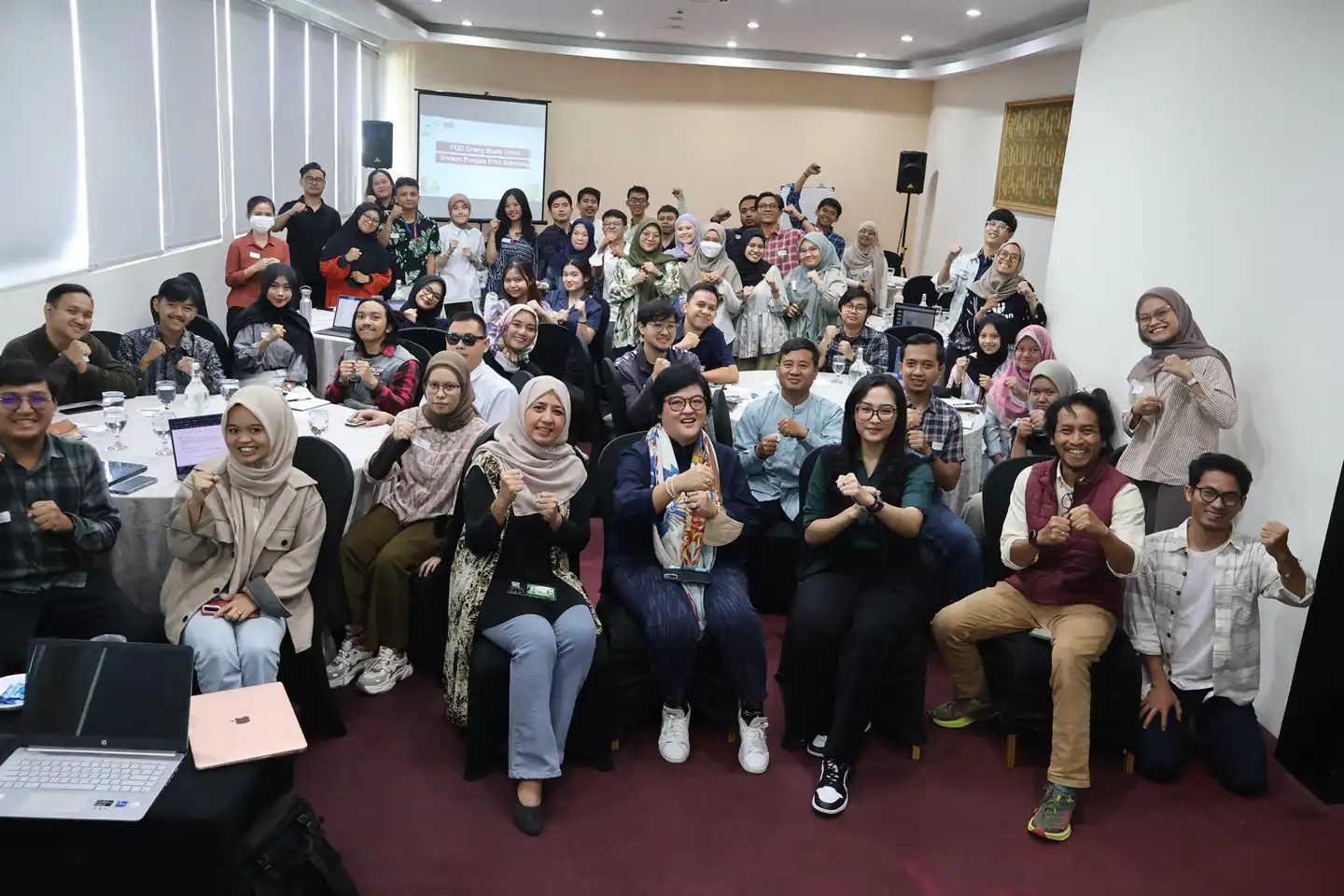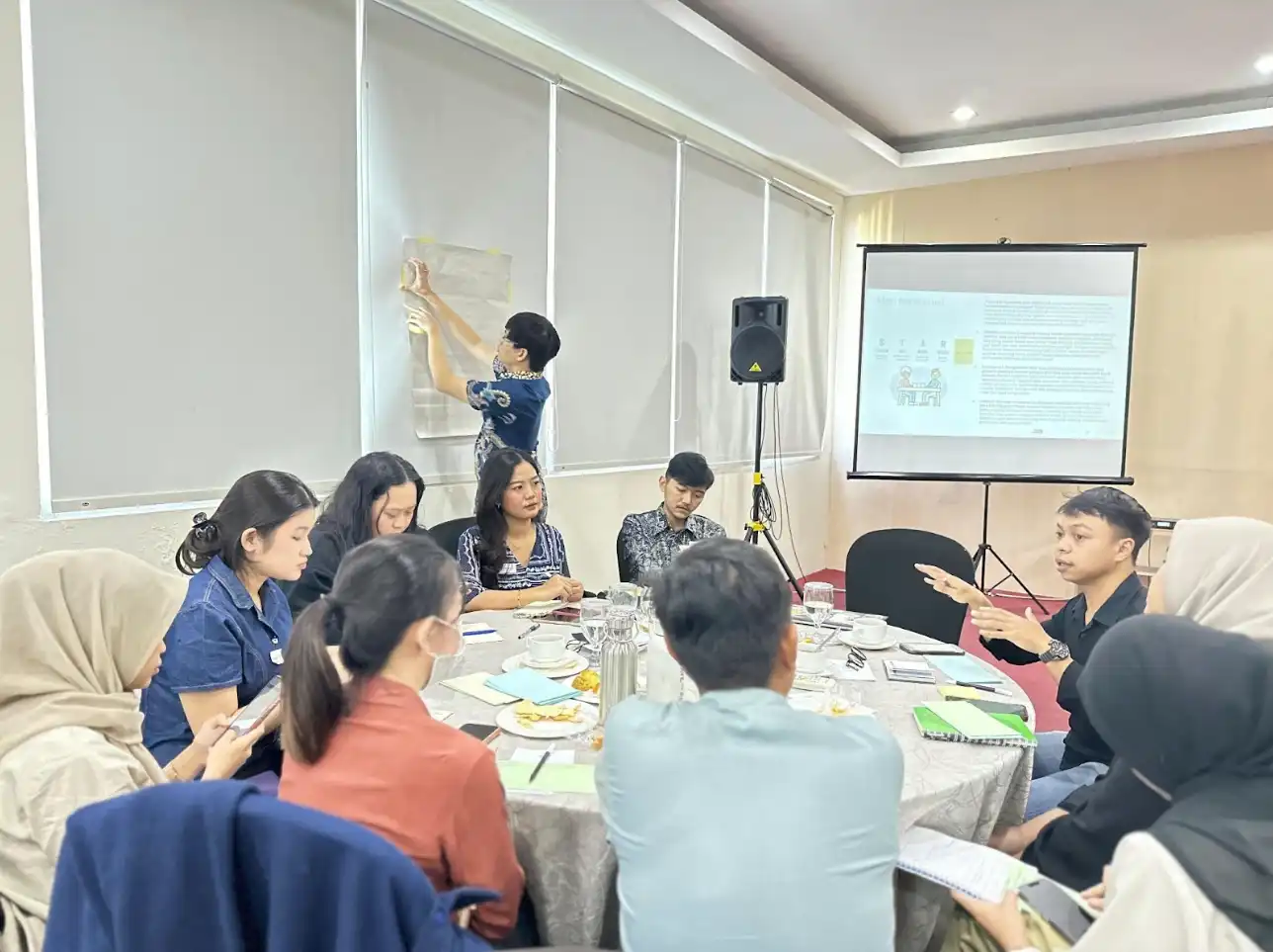Bandung, June 26, 2025 – In order to strengthen a fair and sustainable food system in the city of Bandung, Sinergantara together with the Urban Futures Consortium held a Multi-Stakeholder Forum on the Bandung City Food System entitled “Building a Transformative Food System” on Thursday, June 26, 2025, in Bandung. This forum is part of the collaborative and inclusive public policy-making process between the Bandung City government and civil society organizations.
Since 2023, Urban Futures has been actively facilitating a dialogue space between the government, academics, civil society organizations, and youth communities to encourage the birth of a resilient and equitable food system policy. This third forum is focused on conveying the results of the drafting of the Bandung City food system policy and building a joint commitment for strategic steps going forward.
"Through the Bandung Food System Multi-Party Forum, we hope that the collaborative work formed in each Working Group, including Policy, Resilience, Digital Platforms, and Sustainable Cafes, will be able to produce real and sustainable actions in realizing a resilient and inclusive city food system," said Muhammad Hariyadi Setiawan, Executive Director of Sinergantara.
Bandung City faces serious challenges in its food system. Based on a report from the Bandung City Food and Agriculture Security Agency (DKPP), more than 90% of the city's food needs are supplied from outside the region, making Bandung highly dependent on other areas such as Garut, Cianjur, and Lembang. Meanwhile, according to data from the Central Statistics Agency (BPS) and the Bandung City DKPP, the area of productive agricultural land in Bandung City continues to shrink, from around 2,104 hectares in 2003 to 702 hectares in 2024. The pressure of land conversion into residential and commercial areas worsens this condition.
On the other hand, Bandung City is also facing a food waste crisis. Data from the Bandung City Environmental and Sanitation Agency (DLHK) shows that around 44–45% of the city's total daily waste is organic food waste, or equivalent to 667 tons per day. This condition shows the weak public awareness of sustainable food consumption and the suboptimal food distribution and management system. Through this forum, we are here to map the food challenges of Bandung City and initiate collective steps towards change.
The forum was opened with remarks from Muhammad Hariyadi Setiawan, followed by a presentation of material from Rahmad Effendi, Research Manager of the PUPA Urban Futures Consortium and Priyanka Puteri Ariffia, member of the Bandung Utama Policy Optimization and Development Team of the Bandung Mayor's Program.

Participants were divided into four thematic discussion groups: Production, Distribution and Processing, Consumption, and Waste. The group discussions were facilitated by Mentari, Anggi, Yobel, and Rahmad. The forum participants were young people from various civil society organizations, urban farming communities, and environmental and food activists.
As part of the Urban Futures consortium, Sinergantara encourages the birth of food system policies that are based on the needs of local communities and address the challenges of climate change. This discussion will be a space to agree on further strategic steps.
"We encourage the strengthening of Bandung's food security through six strategic agendas, starting from optimizing urban farming, price information systems, cross-regional farming contracts, to regenerating young farmers. Our focus is on creating economic value for residents, maintaining supply, and building an efficient and sustainable food chain," said Priyanka Puteri Ariffia, a member of the Bandung Utama Optimization and Policy Development Team of the Bandung Mayor's Program.
This forum is also a response to the urgency of transformative food policies, especially amidst the challenges of urbanization, environmental degradation, and increasing social inequality in urban areas such as Bandung.


